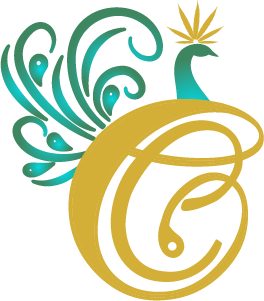
As I entered my childhood home, standing paralyzed beside her door, I took a deep inhalation. The aroma of death that I knew all too well drifted through my nostrils as if to signal that I was too late. Quietly opening her door in case she was just sleeping, I found her unmade bed completely empty. Desperately scanning the dark room revealed her corpse-like figure leaning in the corner in her favorite burgundy chair. Her frail body was no longer moving and I could not see her chest rise. Her clouded eyes were still open but the lack of blinking accentuated her cataracts that were never corrected.
Moving closer, I was able to glimpse the troughs between each rib draw deeper into her gaunt chest cavity indicating she was in fact still alive even if her breaths were shallow. It wasn’t until I got within inches of her face that she showed some recognition that she still knew me. Most of her senses had deteriorated but she had not lost her sense of touch and we slowly caressed each other as the tears streamed down my eyes.
They had tried to prepare me, all of them. It had been only a month since our last visit as I had been busy making preparations to move to Hawaii but her health had declined rapidly to the point that even I could finally see past my own denial. Knowing how blessed we all were that she had lived such a long life, much longer than most, was still no consolation.
She had refused most of her favorite foods from the rest of the family but allowed me the joy of feeding her a small meal. She could no longer walk without falling to her left side nor groom herself. Her independent spirit had vanished as she allowed me the honor of carrying her to the bath. There was no struggle as I removed the grime from her body that she no longer noticed with the warm water and soap. There was something humbling and hallowed about bathing another that could no longer perform such an intimate process.
Needing a second opinion, I called her doctor’s office frantically. I was her medical decision maker and for God’s sake, I was a doctor that dealt with death on an almost daily basis. But this was not the loss of a stranger. This was the termination of a lifelong friendship. This was family. This was different and I needed help.
Any composure and professionalism that I possessed had transmuted into streaming piles of tears and snot running down my face as I entered the office with her anxious, limp body. None of the staff could bring themselves to acknowledge my distraught presence or her skeleton shell besides handing me a medical form to fill and then ushering us quickly into a secluded examination room far from their serene waiting area.
She did not want to be there even though in her state she could no longer fight doctor visits or me. I had resigned myself over the last few years to allow her to live out the end of her elderly life on her own terms with little regard for diet or professional opinions. She hated doctors so I didn’t make her go. She loved unhealthy treats so I gave them to her despite diabetes. The reality was that I could not believe that she was still alive given her age and health issues. This was no consolation when deep in my heart I knew her time had finally come and I still wasn’t ready.
An unsubstantiated, glimmer of hope remained that maybe we were missing something medically that could be done to make her better, to keep her here with me.
The doctor that entered had never met her before. His kind countenance did its best to hold back his shock and concern as he reviewed her medical history. Blubbering my way through the record of her life, he sweetly handed me another box of tissues and finally broached the obvious as compassionately as I had ever seen a colleague.
“Charlotte, I see your tears and I will do whatever you want. But I need to know what your expectations for this visit are. Let’s talk about your options,” he empathetically began.
Oh God, I knew what was coming. He was about to have the talk with me. The one I actually enjoyed having with family when the patient no longer could speak for themselves, so that I made sure I honored their wishes at the end of their sacred life.
But this time, I was sitting on the other side and I didn’t want to hear it. I didn’t want options. I wanted him to tell me the right thing to do. I wanted him to ease my guilt and my pain. I didn’t want her to suffer any longer. I knew her quality of life was gone. But I didn’t want to let her go either. I wanted to selfishly keep her close to me in my arms forever. The self-reproach sitting in my core needed alleviation before I could make any rational, compassionate decision. And this doctor gave me just that with his answer to my one and only question that I had been asked hundreds of times in my career as an ER doctor.
“If this was your loved one what would you do?” I managed to cry out between sobs and hyperventilation.
“Charlotte, if hospice care was available to her, I would recommend that but we don’t have that option here. Her quality of life is gone from what you have shared. Given her health conditions and her old age, it’s unbelievable that she is still with us. In human years she is 126 years old,” pausing for a moment to wipe away his own tears.
“I feel there is no greater gift that we can give our beloved pets when it is their time than to help them transition across the rainbow bridge,” he finished and effectively released me from the chains that were keeping me from making the decision I had known all along was necessary.
Percy had been my companion for almost 19 years. I had rescued this beloved cat from a woman who was dying of ovarian cancer when I was in medical school and one of her last wishes was to see her kittens go to a good home. Percy knew me better than most. She was my best friend. And with the help of this kind doctor, she crossed her rainbow bridge as he put her to sleep right on my chest. She died sedated, relaxed, purring and as close to my heart as possible.
She wasn’t human but that didn’t matter to me. The pain, guilt, sorrow, and comfort I took in helping her die gave me a glimpse at the other side of death that I rarely experience in my field. As a healer, I have taken great consolation in helping another soul pass at the end of their life. It is a sacred process and I am always honored and grateful when I can ease another human’s suffering even when that means helping a family realize the futility of further medical intervention. I have watched how hard it is for the living to come to terms with such a selfless and compassionate decision to help their dying but I have never truly felt that agony of their choice.
Percy gave me the opportunity to have a small taste of the deep gamut of emotions that the loved ones of the dying face. Percy gave me more compassion for myself and for the family and friends of the dying. Little did I know that the following day, during my very next shift in the ER, I would take Percy’s gracious lesson and help an elderly woman, with her family’s support, cross her own bridge to the other side.
Rest in peace, my dear Percy.
Image: Pixabay.com
